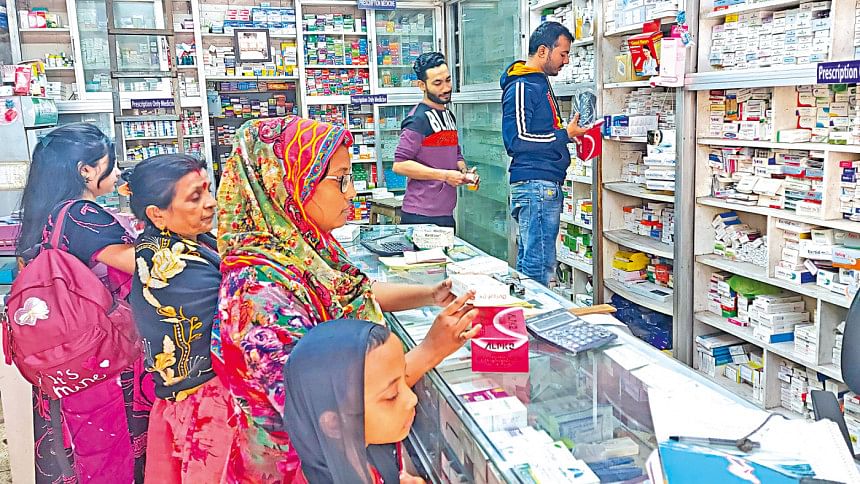API production falls short

While Bangladesh's pharmaceutical sector has exceeded expectations and surpassed many comparator countries, the industry's reliance on imports for raw materials has long been a limiting factor.
At present, the country depends on the global markets to meet around 85 percent of the demand for active pharmaceutical ingredients (APIs), which are the main component of medicines and are produced through chemical or biological synthesis. Each medicine contains specified active ingredients of particular strength.
The imports cost the nation about $1.3 billion annually, according to industry people. Local companies produce the rest of the APIs needed to feed the Tk 30,000 crore industry.
The reliance may lessen soon to a large extent since an API Park, which has been set up in Gazaria of Munshiganj, is set to start operations.
A manufacturing unit is set to be commissioned next month although the authorities are yet to provide a gas connection to the industrial estate.
"We are going to commission the API factory next month. The manufacturing unit is all set for operations," said Sheikh Maksudur Rahman, a director of ACME Laboratories.
The regulatory bodies, including the Directorate General of Drug Administration, the Department of Inspection for Factories and Establishments, and the Department of Narcotics Control have already completed the second round of inspections at the factory.
ACME Laboratories has invested around Tk 500 crore for the facility and installed imported machinery from the US, Germany, Japan, and India to ensure global standards.
The plant has secured an electricity connection but is yet to get the gas link. So, it has installed a generator.
Rahman believes their company will be able to manufacture APIs worth Tk 600 crore per year. "If the large companies start the production of APIs, at least 50 percent of the local demand can be catered."
According to him, Bangladesh needs non-biological APIs worth Tk 6,500 crore per year. At present, at least six companies, including Square Pharmaceuticals and Incepta Pharmaceuticals, manufacture APIs worth Tk 2,000 crore.
The Bangladesh Small & Cottage Industries Corporation (BSCIC) set up the API park on 200 acres of land and allocated 42 plots for establishing 21 industrial units. Of them, four companies have set up factories: Acme Laboratories, Healthcare Pharmaceuticals, Ibn Sina Pharmaceuticals, and UniMed UniHealth Fine Chemicals.
Sanjay Kumar Bhowmik, chairman of the BSCIC, hopes that the park will be able to provide gas connections within a short time.
"We have already spoken to Titas Gas Transmission and Distribution Company and sought the supply of gas. Water and other utilities have already been ensured."
Once all utility supplies are available, the BSCIC will sit with the companies and ask them to set up factories and start production quickly, he said.
SM Shafiuzzaman, secretary general of the Bangladesh Association of Pharmaceutical Industries, said most entrepreneurs have not set up factories due to a lack of a gas connection.
Another reason for the delay is many companies are currently under financial pressure.
Shafiuzzaman said manufacturers would not be able to manufacture 100 percent of the required APIs due to patent issues and because there are innumerable APIs.
Monjurul Alam, chief executive officer at Beacon Medicare, said their company is making preparations to set up an API factory.
"Manufacturers will have to develop APIs in line with patent laws after Bangladesh graduates from the group of the least-developed countries in 2026. We need to produce APIs to take the pharmaceutical sector to the next level."
M Mohibuz Zaman, managing director of ACI HealthCare, said ACI will establish the factory soon after getting the gas connection.
He said the delay has also been caused by the ongoing economic crisis and the appreciation of the US dollar against the local currency, which has sent costs higher.
"The delay is temporary."

 For all latest news, follow The Daily Star's Google News channel.
For all latest news, follow The Daily Star's Google News channel. 



Comments